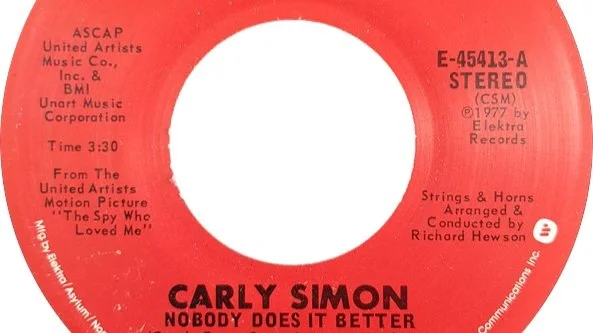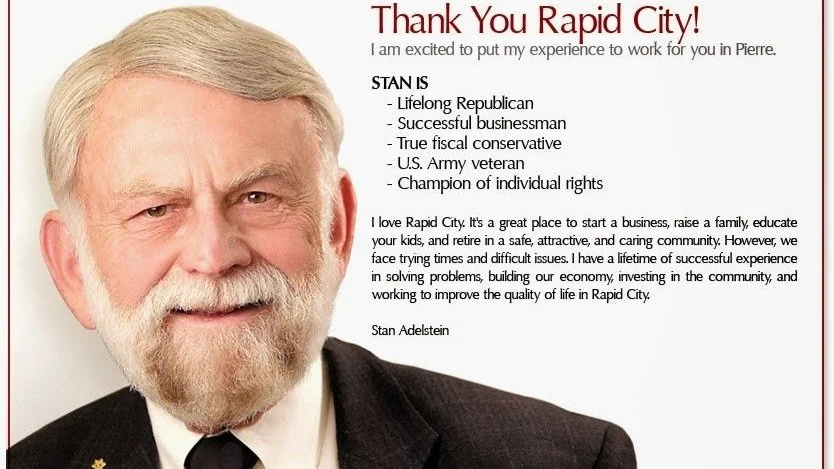Why are the Iowa Caucuses so influential? Credit — or blame — George McGovern for his surprise strategy in 1972
Why do the Iowa Caucuses have such an impact on the presidential campaign — even with a spotty record for picking a winner?
Blame South Dakota Sen. George McGovern, and his campaign manager Gary Hart. They listened to a young aide named Rick Stearns who noted that the Iowa Caucuses were actually ahead of the New Hampshire Primary, which traditionally kicked off the race for the White House.
McGovern was running for the 1972 Democratic presidential nomination, and he had almost no chance in New Hampshire, which was a neighboring state to Sen. Edmund Muskie of Maine, who had impressed political experts, reporters and voters with his performance as the running mate to Sen. Hubert Horatio Humphrey in 1968.
Humphrey, a South Dakota native who found his political home in Minnesota, and Muskie lost a close election to Richard Nixon and Spiro Agnew, and Nixon was seen as vulnerable in a bid for a second term.
At first, HHH didn’t seem interested in running in 1972. He had lost to John F. Kennedy in the 1960 Democratic battle, and was defeated as the party’s nominee in 1968. He jumped into the race later, and was a vindictive and stubborn opponent to McGovern.
That surprised and disappointed McGovern, who had been a friend and neighbor to Humphrey for years. They both lived in suburban Washington, D.C., and used to drive together to the Capitol, McGovern told me.
Before he tangled with his old ally, McGovern had to try to make a mark. He knew Muskie was the heavy favorite to win New Hampshire, so he and a small group of advisers — Gary Hart said it was six people — were looking for options.
When they learned about the obscure Iowa Caucuses, they decided to make a strong effort there. Since McGovern was from a neighboring state and was familiar with agricultural issues and other things that mattered to Iowans, he was able to find support there.
Reporters were stunned on Jan. 24, 1972, when Muskie won, as expected, with 35.5% of the vote. But McGovern was a strong second with 22.6%. Humphrey and former Minnesota Sen. Eugene McCarty, along with New York Rep. Shirley Chisholm and Washington Sen. Henry “Scoop” Jackson all had scant support.
Iowa would select 46 delegates to the 1972 Democratic National Convention, and Muskie earned 18 of them. Another 18 were uncommitted, and McGovern garnered 10.
His long-shot bid for the White House had gained credibility thanks to media coverage. When Muskie’s campaign derailed in New Hampshire after he was enraged by a Nixon campaign dirty trick that targeted both him and his wife, suddenly McGovern was the front-runner.
It helped that Hart had assembled a strong team on the ground to organize for McGovern. The prairie liberal was a national figure, and a fresh face at a time when old, tired Democrats like Humphrey were losing support.
And it all started in Iowa.
After McGovern’s success there, other politicians followed in his footsteps. Former Georgia Gov. Jimmy Carter invested a great deal of time and energy in the Hawkeye State in 1975-76. When he came in second in the 1976 caucuses — trailing uncommitted — and went on to be the Democratic nominee, and unlike McGovern, the winner of the election, that made it official. Iowa was the kickoff of the presidential campaign.
George H.W. Bush threw a scare into prohibitive favorite Ronald Reagan by winning the 1980 Republican Caucuses. Reagan had to fight long and hard for a nomination he assumed was his for the asking, and Bush ended up being his VP for two terms before winning the presidency himself in 1988.
Iowans have become accustomed to having would-be presidents tour their state for months, shaking hands, sampling local foods and explaining their positions and plans to crowds large and small. They brave the heat of an Iowa summer and the frigid cold of a Midwest winter in a months-long effort to impress enough people to attend a caucus and support them.
I covered the 2016 Iowa Caucuses, and did again this year. In 2016, Texas Sen. Ted Cruz won the Republican Caucuses, and Donald Trump was second. Of course, Trump made a baseless claim that he had been cheated. It was a foreshadowing of the sordid and sad future.
On the Democratic side in 2016, Hillary Clinton, with a dazzling record as a former first lady, New York senator and secretary of state, finished in a virtual tie with Vermont Sen. Bernie Sanders, an indication of the long and bitter battle the two would wage before Clinton won the nomination and, most thought, a certain path to the presidency.
That didn’t work out, did it?
In 2020, Trump, as the incumbent president, got more than 97% of the vote in the Iowa Caucuses. The Democratic competition was a mess, with Pete Buttigieg and Sanders finishing in a virtual tie. Sen. Elizabeth Warren was third and former Vice President Joe Biden was fourth. The outcome was in doubt after several issues arose, and it’s still not clear who actually won.
Biden was written off as too old and too often rejected by voters — he had failed in Iowa in 2008, after ending his 1988 campaign before a single vote was cast. But Biden revived his 2020 campaign with a smashing victory in South Carolina and soon was the Democratic nominee.
He also made sure to thank South Carolina by recommending it was placed at the head of the Democratic presidential selection process. Iowa Democrats met on Monday, but they were not allowed to vote for a presidential candidate. They will do so by mail, with their choice mixed in with other results on March 5, which is known as Super Tuesday because of all the state contests.
I stopped at a Democratic caucus site in Le Mars, Iowa, Monday night. There were just a few people there, and their only jobs were to select county convention delegates, elect county central committee members and discuss platform resolutions for county conventions.
Not exactly high drama. The national media paid almost no attention to it.
A Republican caucus site I went to in Le Mars was packed, with an estimated 600 people there to listen to brief speeches about the candidates, primarily Trump, Florida Gov. Ron DeSantis and former South Carolina Gov. Nikki Haley.
Trump won in a landslide, as he did across the state. Despite his many legal woes and scheduled court appearances, his record of lies, boasts and insults, and his tangled and ugly personal life, Republican voters remain loyal to him.
It’s worth noting, however, that Iowa’s record of picking a winner is hardly impressive. Only Carter in 1976, George W. Bush in 2000 and Barack Obama in 2008 used it as a springboard to the White House.
After all, McGovern was defeated by Nixon in epic fashion in 1972. He might have found solid footing on the icy streets and sidewalks of Iowa that year, but it didn’t translate into a ride to glory.
Tom Lawrence has written for several newspapers and websites in South Dakota and other states and contributed to The New York Times, NPR, The Telegraph, The Daily Beast and other media outlets.







